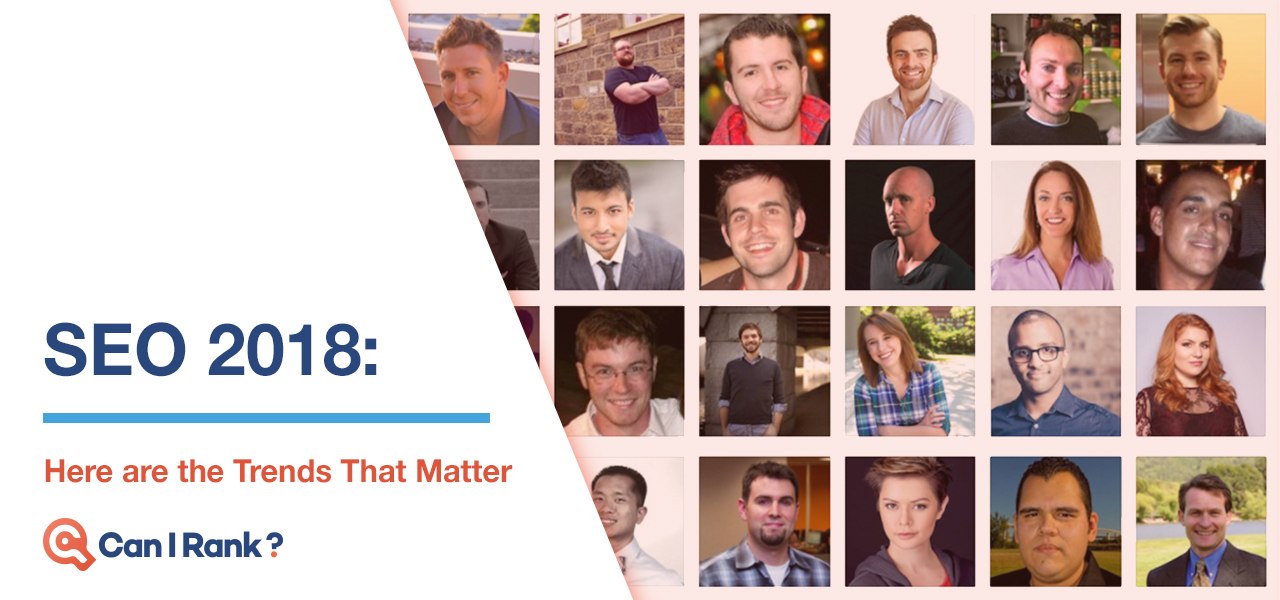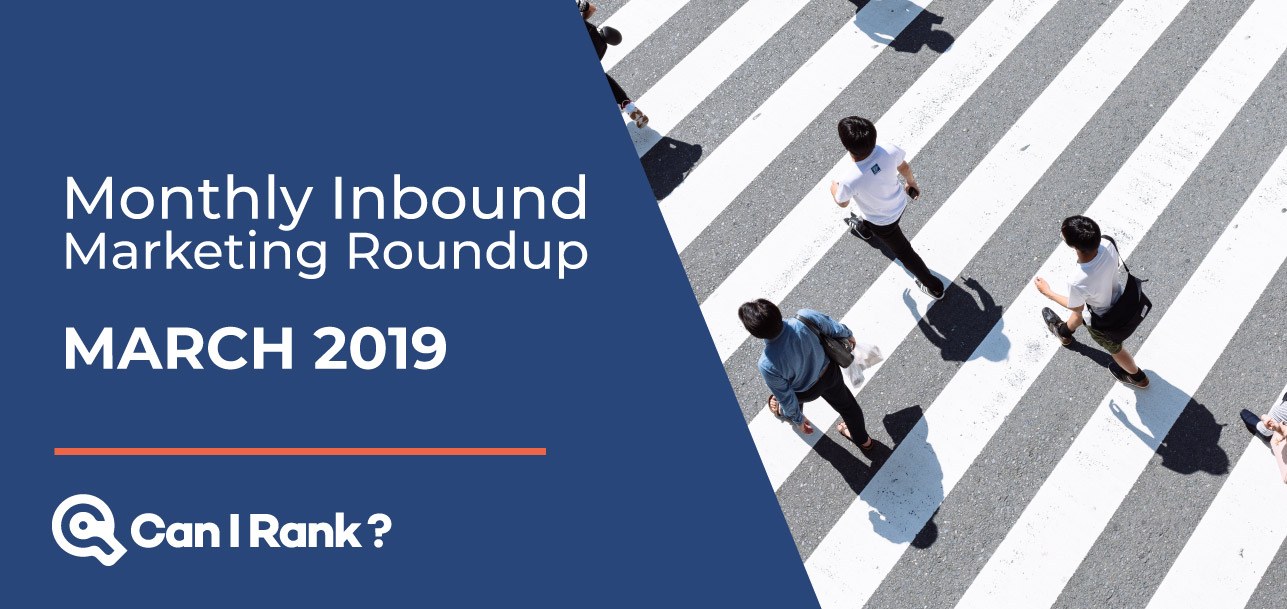With year-end fast approaching, I reached out to a number of marketers and SEO consultants to see what the future holds for SEO in 2018. What I discovered was that although many respondents share similar concerns, there is a surprisingly wide diversity of opinion.
The rise in voice search and the move toward mobile-first indexing are two developments that are top-of-mind for most of the marketers with whom I spoke. Here’s a breakdown of the major issues they see affecting their efforts in the coming year.
A Surge In Voice Search
Will 2018 be the breakout year for voice search? Who knows! But one thing is for sure, voice search is on the mind of many marketers. That’s not surprising, given the rising popularity of devices like Amazon Echo and Google Home. In fact, Gartner predicts that “by 2020, 30% of web browsing sessions will be done without a screen.” Here’s how some SEO’s see things changing.

With more people using voice search, search engines will adapt to provide more of a Q&A format with answers to questions rather than the desktop format of providing a list of results. Brands will compete more for featured snippets in Google search results, so onpage content will need to become more streamlined and easy for Google to recognise it as an answer to a question.
Laura Hall, Marketing Executive, Shiply
I think the biggest change in SEO in 2018 is going to be focusing more on natural language. With more people asking their digital assistants questions in their own voice, you will need to tailor your content to fit this new mold. Focusing your content more on questions people ask, and providing those answers clearly in your copy will help. You need to be writing for humans, not a search engine bot, as you go into 2018.
Kate Neuens, Founder, Kate Neuens SEO Consulting


On many occasions with voice search, your content will be read out by the devices if you are ranking on the first page and appear in the featured snippets. But you are more likely to appear there if you have quality Q&A based content, which means these types of content will become even more important in order for your site to be read out.
Ahmed Khalifa, Founder, IgniteRock
As more consumers purchase home assistants like Google Home and Amazon Echo, we’ll definitely see voice search climb. Our increasing shift from desktops to mobile devices will drive the trend even further. As a result, SEO experts will need to adapt their strategies to focus more on casual and colloquial phrasing and to reach the coveted Google Snippet box with answers to the questions their customers are likely to ask.
Alayna Frankenberry, Manager of Inbound Marketing, BlueSky ETO


In 2018 the most significant change will be the increase in long tail searches due to the voice search growth in mobile devices. Forty percent of voice assistant users started using it only 6 months ago, and as usage shifts from early adopters to the mainstream, long tail will definitely be the best bet for SEO’s next year!
Cristian Rennella, CEO & CoFounder, elMejorTrato.com
Voice search will be big. We’re becoming lazier and the easiest way to get our answers is by speaking to our AI enabled devices. Search engines are already delivering answers to search queries with featured snippets. Websites that optimize for questions will win big as voice search becomes a huge factor in 2018.
Peter Kim, Marketing Strategist, Ready Artwork


Optimizing for voice search is becoming increasingly important each year as its usage increases. Although the fundamentals of SEO will remain important (links, onsite SEO, page speed, content etc.), how one optimizes for certain queries will change. Google is getting better at understanding natural language and SEO practitioners should be optimizing for these types of long-tail terms.
Consider a more holistic approach to your content strategy (rather than targeting keywords alone) that answers the query and offers more insight into what that user may be searching for. Write how people talk. Why is this important? We’re used to seeing the ’10 blue links’ but with voice search, there is only one answer – don’t you want to be the one Alexa is providing?
Tim Dugan, Director of SEO, Web Services CT
While the core SEO practices won’t change too much, the way we do keyword research and form our strategies will. As consumers shift to voice search, so too will our keyword strategies change. This, in effect, means that almost all money keywords will be long tail, and targeting them will require a richer, more skillful copywriting effort as well as up to date keyword research that reflects the vernacular of different searchers.
Rebecca Caldwell, SEO Strategist, Mash Media

Mobile First Indexing Is A Big Deal
One year ago, Google announced plans to “eventually primarily use the mobile version of a site’s content to rank pages from that site, to understand structured data, and to show snippets from those pages in our results.” Although there’s no official word of a launch date for Google’s mobile-first index, its significant impact has many marketers concerned.

Mobile first indexing will be introduced, bringing with it many changes. It looks like relevance is going to be a key factor for future search results. What questions are you answering for search queries will be the biggest ranking factor for 2018. Investing time in winning Rank 0, Pagespeed and mobile user experience will be higher ranking factors than they ever have been. With the introduction of AI to search, Google is showing sites based on a variety of factors like speed and quality, not just the number of links for a certain keyword.
Jonathan Alonso, Marketing Manager, uBreakiFix
There is no secret about SEO in 2018: Two Words: Mobile Speed. If you are not already checking, prepping, and changing your website for an optimized mobile speed in 2018 likely your SEO will take a major hit. Google is adamant about making mobile the premier platform for search, NOT desktop and they are concerned that people with mere 3G connections are not getting the proper information fast enough.
Scott W Johnson, Manager & Chief Executive, Whole Vs Term Life Insurance.com


With the imminent launch of a new mobile-first index, mobile-friendly websites are no longer an option. Google has recently rolled out a page for testing the mobile speed of a webpage, which further demonstrates that the search engine is stressing the importance of good mobile design. When designing your site and creating new pages, it is always important to think mobile-first and test your page’s layout on mobile devices to ensure it is quick loading, aesthetically pleasing, and user-friendly.
Jim Milan, SEO Consultant, JimMilan.com
Google has already tested mobile-first indexing in various industries and locations and plan to start rolling it out during the year 2018. The outcome means that webmasters will need to ensure that their websites are fully optimised for mobile. The best solution, in my opinion, is either via a responsive or adaptive web design that helps bridge the gap between desktop and mobile versions of the same website. AMP (Accelerated Mobile Pages) will also become increasingly more popular as a result of this mobile first indexing.
Andrew Wheller, SEO Executive, Pen Warehouse


With Google Mobile Index scheduled for launch in 2018, there is even greater emphasis on putting mobile first. The emergence of Google’s Rank Brain as the third most important ranking factor is driving SEO’s to prioritize user engagement and click-through rates over traditional SEO tactics. Visual search optimization is becoming crucial for SEO’s as well, especially ones working in e-commerce.
Steffen Ploeger, SEO Specialist, 9thco.com
Two of the biggest trends are the push to make convert all sites to SSL and making them as mobile friendly as possible, especially with Google’s new mobile-first index. Also to continue to deliver engaging content and make the user experience as positive as possible for our readers. A major challenge I foresee is trying to understand how the growing popularity of voice search and virtual assistants will affect the industry.
Jeff Butler, Chief Analytics Officer, We Rock Your Web

Achieving Position 0 Is Crucial
Position 0 (zero) is also known as a featured snippet. It’s the result that appears below any paid ads, but above regular organic results. Unlike organic results, Google uses featured snippets to give searchers a summary of the best result. For many marketers, zero is the new one and finding the right keywords will continue to prove challenging.

I believe the single most compelling trend next year will be the growth of voice search and position zero. We’ve seen increased activity around voice search and position 0 search results in the past year. While it’s a relatively new trend the past few years, adoption by consumers has achieved critical mass. comScore predicts that voice searches will make up 50 percent of all searches by 2020, which validates the importance of optimizing for voice search today. 70 percent of the returned voice searches utilize the information returned in Position 0. It is a highly coveted position for brands.
Kent Lewis, President, Anvil Media, Inc.
Google is caching and curating the content that they want, and Google will always prefer its own sources as opposed to yours. This means, unfortunately, SEOs have to play their game and provide as much structured data as possible to that Google can manipulate and display it to their users as it wants. This means it’s no longer a game of ranking in position one, below four ads. It’s about being the first result. Period.
Mike Kaplan, SEO Analyst, Workshop Digital

The Basics are as Important as Ever
It’s easy to get wrapped up in all these potentially big changes coming down the pipeline. But as this eCommerce SEO case study reminds us, let’s not forget the basics. Hear what the following marketers have to say.

It seems like at the end of every year we are desperate to see some kind of overhaul. We’ve seen many times before that SEO can be impossible to predict at times. Google has already started to implement Mobile First Index, which of course is huge, but basics are as important as ever.
Even if all your pages are optimised for mobile display if there’s no substance they likely won’t rank. Content is, always has been and always will be, king. It’s SEO 101 but the number of times I see thin, keyword stuffed and valueless garbage shows that it isn’t necessarily being listened to.
Whatever may be in store in 2018, great content will be able to meet it head-on. After all, it’s essentially the basis of a whole site.
Tieece Gordon, Digital Marketing Executive, Kumo Digital
My predictions for SEO in 2018 is that we will continue to see Google devalue pages with keyword stuffing and thin content. I suspect that the impact of directory links and other links from sites with no traffic will continue to lose steam. Real estate on page 1 will keep shrinking as Adwords now sometimes take up 40% of the page so the competition will continue to be fierce. I also believe that Google will reward video content sharing even if they say they don’t, and that importance of mobile optimization will grow.
Danielle Kunkle, Co-founder, Boomer Benefits

Create Good Quality Content
Many, if not all, of the people I spoke with on this expert panel consider quality content to be an important factor going into 2018. For me, describing good content is like describing pornography. I know it when I see it. Still, aspects like user-experience, page design, and site speed are becoming increasingly associated with the concept of good content.

Gaming the system is getting more difficult with each passing year, and in 2018 it will be near impossible. Gary Ilyes from Google recently commented that Google is now ignoring backlinks from publishers known or suspected to be disingenuous in how they distribute backlinks. Covering the basics of onsite SEO, having a keyword strategy, and deploying a solid link-building strategy is an essential foundation, but it’s no longer enough.
Creating high-value content that targets content and relevancy gaps within the SERPs will be the name of the game moving forward. Anything else is only becoming an increasing act of futility and a complete waste of time. There are no more shortcuts.
Daniel Davidson, Founder, By Dan
I believe that one major change that you begin to see more of in 2018 is a greater focus on creating richer, better content, with a continued move away from forced outreach and link building. Given Google’s recent algorithm updates, which are getting increasingly smarter and more aware of low-level SEO tactics, there is no truly no longer any substitute for authoritative, interesting, and unique content that generates organic virality.
James McCarthy, CEO, Placement Labs


Google continually optimizes its algorithm for better content. They’ve long since cut down on keyword stuffing and bad content. Websites that don’t load fast or have misleading information also get penalized. In 2018, there’s going to be more of that. We’re already seeing sites with AMP content rank higher. Any other factors that lead to higher time on site with signals to Google that the site is worth showing will help SEO. So aspects such as site speed, page security, design, UI/UX, and good content is what businesses should focus on.
Sid Bharath, Marketing Consultant, Sid Bharath.com
Search engines are evolving, and so are their users. Simply tagging your content with isolated keywords won’t drive traffic to your website as it did in the past. To get visitors’ attention and optimize for rank, marketers will have to produce engaging clusters of content on themes relevant to their audiences. This “content pillar” strategy isn’t new: just think about how Wikipedia entries associate related topics.
That ecology of content helps to explain why Wikipedia nearly always appears near the top of search results. Marketing practices will need to adapt to these changes in search engine use by creating premium material, curating it to create natural conversion paths, and ungating it to increase visibility. Adopting this new approach might be difficult, but it will become increasingly challenging to thrive in the digital landscape relying on obsolete methods.
Ryan Woods, Director of Strategy, HW Creative Marketing

Relevancy is Critical
Once upon a time, SEO was all about producing a large number of pages each targeting one keyword and getting lots of links back to those pages; the more the better. But no longer. The past few years have seen a shift away from quantity towards quality. Whether it’s getting links or creating content, there’s a greater awareness of making sure everything done is on-topic and related. Those are key points, especially for those running SEO for startups.

From the beginning, SEO has been slowly shifting from a quantitative to a qualitative approach. This fits in with Google wanting the best web pages to rank. One way we see this playing out is with content.
At one point in time, it was acceptable to create a different page to target each primary keyword. The danger of this approach is that the risk of content cannibalization continues to grow. Because of this, we foresee companies posting less frequently, although still on a regular basis.
Instead of creating posts in isolation, they will focus on making sure the entire body of website content functions as a cohesive whole. Thus, each new piece of content will undergo a different level of scrutiny and many older pages will likely be consolidated.
Adam Draper, Founder, Gladiator Law Marketing
In 2018, SEO’s should answer this question: Would I be doing this if search engines didn’t exist? Marketing on industry-specific directories and marketplaces, speaking at targeted conferences, appearing on relevant podcasts, and increasing site traffic through newsletters are all practices that are good for SEO and make perfect sense in a world without search engines. Unnatural, spammy practices are out; holistic, natural practices are in.
John Locke, Founder, Lockedown Design


The digital marketing landscape is constantly changing, and SEO is unlikely to be the exception in 2018. Most marketers are well aware of the tactics that feel cheap or easy. In 2018, we could be seeing citations ceasing to have a major effect on SEO efforts, and similarly, we could be encountering an even stricter standard on keyword stuffing as semantic (topic-based) SEO matures. The key is to remember that focusing on relevancy and trustworthy will always prove to be the best strategy.
Eric Johnson, Content & SEO Specialist, FeedbackWrench
Search engines have become better at interpreting search intent, and the main factor in that determination is relevancy and credibility – something that cannot be obtained through old school black hat techniques. Enter the impact of non-linked earned media. When executed properly, 3rd party media can build a foundation of awareness and trust between individuals and thus a sense of integrity in the form of a relationship.
It’s these relationships that will help drive the relevance and reputation of a brand/website in the age of semantic search. Look for Google to take a more holistic view to SEO rather than just old link building tactic set, such as interaction with content (i.e. analytics), traffic to the site from multiple channels (social, email, etc.), and even brand lift within search trends to determine how we view certain brands and individuals offline.
Pete Herrnreiter, Director, Motion PR

RankBrain is Top-of-mind for Some
Two years ago, Google confirmed the existence of RankBrain, a machine-learning artificial intelligence system that aims to provide more relevant search results for users. Although many prominent figures in SEO believe that RankBrain isn’t something for which you can specifically optimize, it remains a concern for many people.

RankBrain will force a much closer inspection of user experience, and SEOs will need to monitor bounce rate and average time on page much more closely than they have previously. These metrics will be increasingly powerful as ranking factors.
James Rice, Head of Digital Marketing, WikiJob
My humble opinion is that the days of substantial SEO changes are over. Google now has an indomitable search algorithm that only needs very slightly tweaking now and again to fine tune and provide its users with the most relevant and trustworthy results.
Google has been moving wholeheartedly towards ‘machine learning’ over the last few years and in 2018, we can expect to see the search giant continue in this direction with more investment into its ‘Rankbrain’ algorithm.
Based on how people interact with your web pages, Google can understand how important the pages on your site are for various search terms.
More importantly for us as SEOs, it means that the power of links to rank websites is set to decrease, and the power of good user-engagement metrics on a website (and anything that improves them) is increasing. Keep the user on your site with great content, easy navigation, and beautiful design, and you’ll rank better than ever before in 2018.
Will Coombe, Co-founder, Sharpe Digital

User Intent
Part of the challenge in providing relevant search results is understanding user intent, which RankBrain seeks to accomplish. However, marketers can try to do the same when creating content.

In 2018, it will be even more important to focus on the user intent of search queries. If you’re able to understand the kinds of questions your users are asking, you can optimize your website content so that it directly answers those questions. Rather than focusing all your time on finding keywords, try creating content around those keywords. This will get your content closer to what users are actually searching for, and any variations.
Brandon Schroth, Founder, Click First SEO
Google is Going to Test a Dramatically Reduced SERP.
The increase in mobile usage combined with the rising use of voice search makes this idea more likely than ever. We’re use to seeing a list of ten links, most often many pages long, for every search. But just because it’s always been this way doesn’t mean it will continue. In fact, the amount of space occupied by organic search results has been consistently reduced, ever since Google introduced ads back in October, 2000.
I’m going to stick my neck out here, and make a fairly dramatic prediction: I think that in 2018 Google is going to test a dramatically cut-down SERP. Look at Google’s recent changes to results pages, and how they display them, coupled with the rise of machine learning. It all trends towards less organic real-estate on SERPs.
Click-through rates on organic listings in the 6 to 10 spots typically total less than 5%. That’s a very attractive amount of page space going to organic listings which users don’t appear to be interested in… If Googles algorithm has gotten good enough at delivering local, contextual, personalized SERPs to its users, then why bother showing them the web pages/websites which are almost, but not quite what you searched for?
Why wouldn’t Google try doing away with those results, and putting something more valuable to users in that space? If this prediction comes true, SEO is going to become very interesting in 2018 (hilarious understatement – it’ll be a bloodbath).
I’ve made this prediction before and been laughed at… Until the local pack expanded out for hundreds of sectors, reducing the front page organic positions available. #TheSkyIsFalling
James Armstrong, Marketing Manager, KVH Media Group

Videos will be Even More Popular
It’s hard to find a search result these days that doesn’t include at least one video on the first page of the SERP’s. Here’s how one marketer thinks video will play out in the coming year.

In 2018, look for more and more companies to accompany videos with their outreach campaigns. Videos now appear on over 70% of search results, and according to studies, 46% of consumers are more likely to purchase a product after watching a video.
One important aspect to keep in mind, however, is that text is still very important to add to your videos in order to see SEO success. Googles robots prefer to digest text and adding a transcript to the bottom of the page where the video lives will result in more on-page copy that the robots can see. There are plenty of great audio-to-text tools out there that companies can leverage to add a transcript to older videos as well.
Seeing as videos can create backlink opportunities and most videos result in a solid ‘average time on page,’ different search engines benefit from companies using video as a marketing tactic. With social videos generating 1200% more shares than text and images combined, according to WordStream, look for video sharing to be a big SEO trend in 2018.
Stuart Ridge, Chief Marketing Officer, VitaMedica
SEO Practices will Fold into the Larger Marketing Strategy
As search engine algorithms have become more refined, the nature of SEO profession has also changed. There was a time where building massive amount of links to a site worked well for getting ranked high up in the SERPs. But those days have long gone. SEO isn’t dead, but it has changed and will continue to do so.
I think in 2018 we’ll see an acceleration of SEO practices being folded into the larger marketing strategy. Because Google will continue to monetize its product and push organic results further down, SEO-ers will need to expand their practice and find organic traffic outside of Google’s organic ranking.
SEO-ers will have to understand traditional marketing concepts like the 4Ps, the customer journey, and how the website supports the overall business goals. Once you understand the bigger marketing picture, new traffic sources will present itself. For example, it might be more valuable for an adjacent website to share qualified leads with you as opposed to a link to your site.
From a more inside baseball view of SEO, I think topical authority will become more and more important. Mentions and links on websites that share topical relevance will help you rank better in the long run.
Alex Deckard, SEO Specialist, Aeroflow Healthcare

Branding Becomes More Beneficial
Branding helps generate awareness and build trust. Although these attributes are difficult to measure, these factors sway the decision-making process. Consumers prefer to do business with those the know and like.

Though hard to measure, branding will become more important as it adds legs for the core SEO signals like ‘trust,’ ‘organic link earning’ and ‘organic click-through-rates.’ Therefore, companies will have to find the budget for activities such as offline branding to create top-of-mind awareness such as billboards, online and network TV commercial spots, catalogs, mailed promos and other forms of targeted print advertising. Secondly, this will push the envelope to create affordable ways to track offline media than currently available.
Shanti Shunn, Digital Marketing Strategist, Vizion Interactive
Paid Social
Is it just me, or is it harder to get traction these days? Since early 2014, when Mark Schaefer first coined the term content shock, the amount of online content has exploded. Since then it has become progressively difficult for content to get any attention. I guess it’s not surprising that an increasing number of marketers are turning towards paid promotion.
Paid social will come into play more frequently as companies will find they need to seed their content in the major social networks to help it get traction. The best piece of content may never get the visibility it deserves, especially if it’s published on a low to mid authority website. It can easily get buried in the SERPs by listings from content powerhouses and large media outlets. Organically sharing the piece on social networks will help, but even then, the exposure is just a fraction of the opportunity. Utilizing paid social can help the piece get the initial views, social shares, and perhaps even links to give it the foundation to rise in the SERPs moving forward.
Leslie Handmaker, Digital Marketing Strategist, Paycor

How do you see SEO changing in 2018?
Do you see any major alterations to the SEO landscape in the coming year? Or will it just be more of the same?




It’s really impressive to see that so many marketing experts share their views about link-building under one post…I have bookmarked this article for my future reference and would love to refer it again in the coming days.. I can’t imagine the amount of hard work you’ve put on to bring all the SEO experts under one shed. Appreciate your efforts & Thanks to all again!!!
Glad you enjoyed the post Aaron!
Optimize your content flow by solving the searchers intent, possibly multiple intents, in order of demand. Before writing any content, you need to know what the searcher is trying to accomplish & what you want that visitor to do on that page. Also, optimizing the pages for the various organic results including featured snippets, people who ask, related questions, images, etc, is going to be key this year. Knowing how far down your actual organic result will be pushed due to the various snippet results for a keyword is crucial.
My only thought that goes against the idea of shorter SERPs is that they need a certain number of results to continually test and find out what the best content is.
Of course with rich snippet results this has already been reduced further than just the ads being added but I think there has to be a limit to what they can reduce as they will ultimately no longer be a search engine by definition.
Good point David! But with voice search, they only surface the “best” result. It really is winner take all. So I won’t be surprised if they move towards fewer results, at least on page one.
With my client’s projects and my own small websites, I definitely see the best results happen when we stick to the basics of quality relevant content and simple on-page optimization, creating for people first and search engines second ;) I’m glad to see a lot of echoes here about focusing on the basic principles and best practices, always really good advice.
SEO legends, great article! I think your predictions were right!
Great piece! It’s still valid in 2020!
great article.
It’s really impressive to see that so many marketing experts share their views about link-building under one post